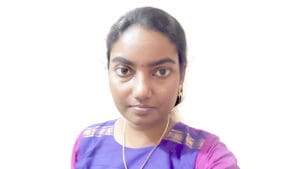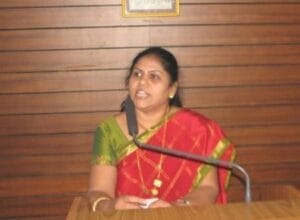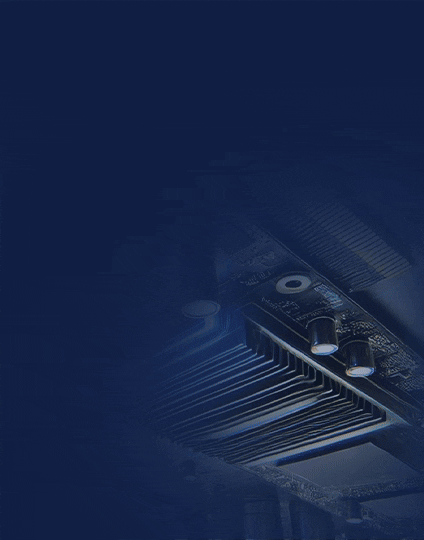Explore Nikila’s journey as a female Software Engineer. Uncover challenges, advice for women in engineering, and insights on her evolving career in this dynamic field.
Women In Engineering with Nikila
FPGA Insights has conducted an exclusive interview with Nikila, who is working as a Software Engineer at Tech Mahindra to gain valuable insights into her experiences as a woman in engineering.

What’s your Name, job title & area of research/work?
My name is Nikila, and I work as a Software Engineer at Tech Mahindra. My area of work primarily involves developing and maintaining backend systems.
What sparked your interest in engineering? Can you describe the moment you realized this was a field you’d like to pursue?
What sparked my interest in engineering was a mix of curiosity and creativity.
As a child, I was always fascinated by how things work. But the real moment came in Class 10, during a school workshop on computer science. They showed us how a simple program could automate tasks and solve real-life problems.
That clicked with me, the idea that I could build something with just logic and code felt empowering. I remember going home that day and writing my first basic HTML page. It was ugly, but it was mine. From then on, I knew I wanted to be in a field where problem-solving and impact intersect, and engineering was that path for me.
What are your experiences of being a female engineer?
Being a female engineer has been a mix of growth, challenges, and quiet resilience. I’m fortunate to be part of a team that’s fairly inclusive, but that doesn’t mean the journey has always been smooth.
In college and early in my career, I often found myself as the only woman in the room during technical discussions. There were moments when I had to prove my competence twice over, or when my suggestions were overlooked until a male colleague repeated them. Subtle biases like these can be discouraging, but they also made me more determined to hold my ground and let my work speak louder.
One of the most valuable things I’ve done is find a supportive peer circle both male and female where I can learn, vent, and grow. Over time, I’ve noticed a shift: more women entering tech, more men becoming allies, and more conversations about equity in the workplace.
That said, being a female engineer still means you often have to walk a tightrope balancing assertiveness with “likeability,” confidence with humility. But I’ve learned to embrace it. Every challenge has shaped me into a stronger, sharper professional, and I’m proud to be part of the change that’s slowly but surely making tech more inclusive.
Can you tell a bit about your career path so far?
I started my journey with a B.Tech in Computer Science, then joined Tech Mahindra as a Graduate Trainee. I began with bug fixes and testing, then moved into backend development using Java and Spring Boot. Over time, I worked on client projects involving microservices and CI/CD, which boosted my technical and communication skills.
Currently, I’m a Software Engineer focused on scalable backend systems, and I’m also upskilling in cloud technologies to grow further in my career.
What has been your most challenging experience as an engineer?
One of my most challenging experiences was during a critical client project where we had to migrate a legacy system to microservices architecture under a tight deadline.
I was still relatively new to microservices, and the pressure was intense. There were unexpected bugs, frequent deployment failures, and late-night calls with the client. On top of that, I had to coordinate with multiple teams and defend my decisions in meetings, which wasn’t easy as a young woman in a male-dominated environment.
But that challenge taught me a lot about technical troubleshooting, handling pressure, and speaking up with confidence. Looking back, it really shaped me into a stronger, more independent engineer.
What is the most exciting thing about your job?
The most exciting thing about my job is the problem-solving. I love the process of breaking down a complex issue, finding the root cause, and building a solution that actually makes a difference.
Also, working on real world applications that impact thousands of users gives me a sense of purpose. Every project is a chance to learn something new, whether it’s a tool, a technology, or just a better way to think. That constant learning keeps the job fresh and exciting for me.
What kind of impact would bring you great satisfaction in your work?
For me, real satisfaction comes from building solutions that are reliable, efficient, and genuinely helpful to users. When something I’ve developed makes a process smoother or solves a real problem for a client that’s a big win.
I also find great fulfilment in mentoring junior developers and helping create a more inclusive team culture. If I can inspire or support other women to thrive in tech, that’s the kind of impact I’d be truly proud of.
What do you think needs to be done to improve the statistics in terms of women’s participation in engineering?
To improve women’s participation in engineering, we need to tackle both social mindset and workplace practices.
First, there has to be a cultural shift, families and schools should treat engineering as equally suitable for girls, not just boys. Girls often have the interest but lack encouragement or role models.
Second, in colleges and workplaces, we need to eliminate subtle biases and ensure women are included in technical discussions, leadership roles, and decision-making processes.
Lastly, offering strong mentorship, flexible work options, and clear growth opportunities can help retain women in tech. It’s not just about getting women into engineering, it’s about making sure they’re valued and supported throughout their journey.
What do you enjoy most and least about engineering?
What I enjoy most about engineering is the constant problem-solving. Every day brings a new challenge, and it’s rewarding to build solutions that actually work and help people. I also love that the field is always evolving, so there’s always something new to learn, it keeps things exciting.
What I enjoy least is the occasional lack of recognition, especially in team projects where contributions can go unnoticed, more so as a woman. Also, the long hours during deadlines can get exhausting. But even then, the satisfaction of completing a tough project usually makes it worth it.
Who has been your greatest support, coach, and mentor across industry, and why?
My greatest support and mentor in the industry has been my team lead from my first major project at Tech Mahindra. She was not only technically brilliant but also incredibly approachable and empathetic.
What made her stand out was how she believed in me even when I doubted myself. She gave me challenging tasks, trusted my decisions, and always had my back during client reviews. More importantly, she showed me that you can be a strong leader without losing kindness, something I carry with me even today.
She taught me both hard skills and soft strength, and her mentorship played a big role in shaping my confidence and growth as a woman in tech.
What is it like to be a woman in engineering? Do you feel that your gender gives you a different perspective and experience from your male counterparts? Any advantages?
Being a woman in engineering is both challenging and empowering. You do face biases, sometimes subtle, sometimes direct. You might have to prove your skills more often or deal with assumptions about your capabilities. But at the same time, it builds resilience and confidence.
I do believe my gender gives me a different perspective, especially when it comes to team dynamics, communication, and user-centric thinking. I’ve noticed that women often bring strong collaborative and empathetic approaches to problem-solving, which are just as important as technical skills.
As for advantages it’s still a male-dominated field, but things are improving. Some companies actively promote diversity initiatives, giving women more opportunities to step into leadership and innovation roles. But the biggest advantage, I’d say, is the unique voice and value we bring when we show up as our authentic selves in engineering spaces
What advice would you like to give to women interested in engineering? What kind of practical experiences should they have? Which technical skills should they pick up?
If you’re interested in engineering, my advice is to trust yourself and stay curious. Don’t be afraid to start small every line of code you write or concept you learn adds up. Get as much hands-on experience as you can, whether through internships, projects, or online challenges.
Focus on learning the basics of programming, how to solve problems logically, and how real world systems work. It’s okay to make mistakes that’s how you grow. And remember, you don’t have to know everything at once. What matters is your willingness to learn and keep going. Stay confident, speak up, and never underestimate the value you bring to the table as a woman in engineering.











